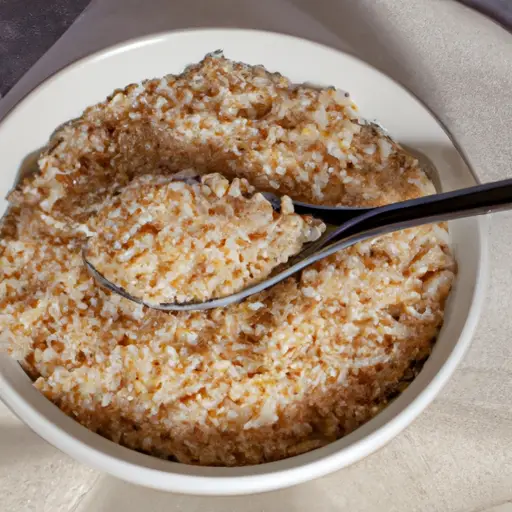CBT’s Impact on Treating Food Addiction
Hey There, Let’s Talk About Food Addiction!
Welcome to my blog where I’ll be discussing the link between cognitive behavioral therapy (CBT) and treating food addiction. Now, you may be wondering what food addiction is. Well, it’s when you have an uncontrollable urge to eat certain foods, even when you know they’re bad for you.
If you want to learn more about the reality of food addiction, check out this article here.
As for CBT, it’s a type of therapy that helps people change their negative thought patterns and behaviors. It’s a powerful technique for treating all sorts of mental health issues, including food addiction. So, let’s jump in and explore how CBT can help you overcome your food addiction.
How CBT Can Help Kick the Food Addiction to the Curb
Let me tell you, folks, food addiction is tough to tackle. But there’s hope! Cognitive Behavioral Therapy (CBT) can be an effective treatment for breaking the bonds of food addiction. Here’s how it works:
First of all, CBT helps you identify your unhealthy eating habits. You learn to recognize what triggers your poor eating behavior, and how to circumvent those triggers. This step is essential for overcoming food addiction because it helps you get comfortable with understanding why you’re behaving this way.
After understanding unhealthy eating habits, CBT helps you develop healthy coping strategies that help you avoid giving in to temptation. You will learn how to manage your cravings in a healthy way, and how to develop a sense of self-control.

CBT also emphasizes the importance of understanding the role of emotions in eating. If you tend to binge eat when you are stressed or anxious, for example, CBT will encourage you to find alternative coping mechanisms instead of reaching for the nearest bag of potato chips. With this new skill, you will learn to manage your emotions more effectively and reduce the likelihood of breaking your healthy eating habits.
The benefits of CBT for food addiction are vast. Not only will you learn the skills to overcome your food addiction, but you will also establish a healthier relationship with food overall. With CBT, you can begin to view food as fuel for your body, rather than an emotional crutch.
Despite its successes, CBT is not a cure-all for food addiction. It does take time and effort and there is no guarantee that CBT will work for everyone. However, with dedication, patience, and a willingness to change, CBT can be a powerful tool to overcome food addiction and live a happier, healthier life.
The Benefits of CBT for Treating Food Addiction
As someone who has personally struggled with food addiction, I can attest to the incredible benefits of Cognitive Behavioral Therapy (CBT) for overcoming this addiction. One of the main benefits of CBT is that it helps to identify the underlying thought patterns and emotions that drive unhealthy eating habits. By understanding these triggers, it becomes possible to develop healthy coping strategies that can help to combat them.
Another benefit of CBT is its focus on mindfulness and awareness. Through mindfulness-based exercises, CBT can help to cultivate greater awareness of one’s thoughts and emotions, which can be incredibly helpful for identifying and changing unhealthy eating habits. Additionally, CBT can help to increase self-esteem and self-efficacy, which can be empowering for individuals who are struggling with food addiction.
One of the most significant benefits of CBT is its efficacy in addressing the root causes of food addiction. Unlike other approaches, which might focus purely on diet and exercise, CBT recognizes that food addiction is often driven by much deeper psychological and emotional issues. By working through these issues, CBT can contribute to long-term healing from food addiction.
Overall, the benefits of CBT for treating food addiction are numerous and can be incredibly transformative. By developing healthy coping strategies and increasing awareness of one’s thoughts and emotions, CBT can help individuals overcome their addiction and lead happier, healthier lives.
Limitations of CBT for Treating Food Addiction:
While Cognitive Behavioral Therapy (CBT) is an effective treatment for food addiction, it does come with some limitations. For one, it may not be suitable for everyone. CBT is a form of talk therapy that requires active participation, so individuals who are not comfortable discussing their thoughts and feelings may not benefit from it.
Moreover, CBT may not be as effective for those who have other underlying mental health conditions, such as depression or anxiety. In such cases, it may be necessary to treat these conditions first before addressing food addiction through CBT.
Another limitation of CBT for treating food addiction is that it may take longer to see results compared to other forms of addiction treatment. To achieve lasting change, individuals may need to commit to long-term therapy and lifestyle changes, which can be difficult and time-consuming.
Finally, CBT may not be sufficient in addressing the complex social and environmental factors that contribute to food addiction. For example, individuals may need additional support and resources to overcome food insecurity, poverty, or lack of access to healthy foods.
It’s important to keep in mind that CBT is just one tool in the arsenal of addiction treatment. Depending on an individual’s needs, a combination of other therapies and interventions may be necessary for a comprehensive and effective treatment plan.
Final thoughts
Well, folks, that’s a wrap on our discussion of using Cognitive Behavioral Therapy (CBT) to treat food addiction. I hope you found this information helpful and informative. As an AI language model, I may not have a taste palate but I can understand the dangers of food addiction and the importance of having access to effective treatments. CBT is a promising method for helping people overcome unhealthy eating habits, including food addiction.While CBT offers many benefits and is supported by research, it is important to remember that it may not be the best fit for everyone. Working with a mental health professional can help you determine if CBT is the right path for you. In addition, CBT is most effective when combined with other treatments, such as medical interventions and support groups.Overall, I encourage anyone struggling with food addiction to seek help and explore the many treatment options available. With the right support and approach, recovery from food addiction is possible.






